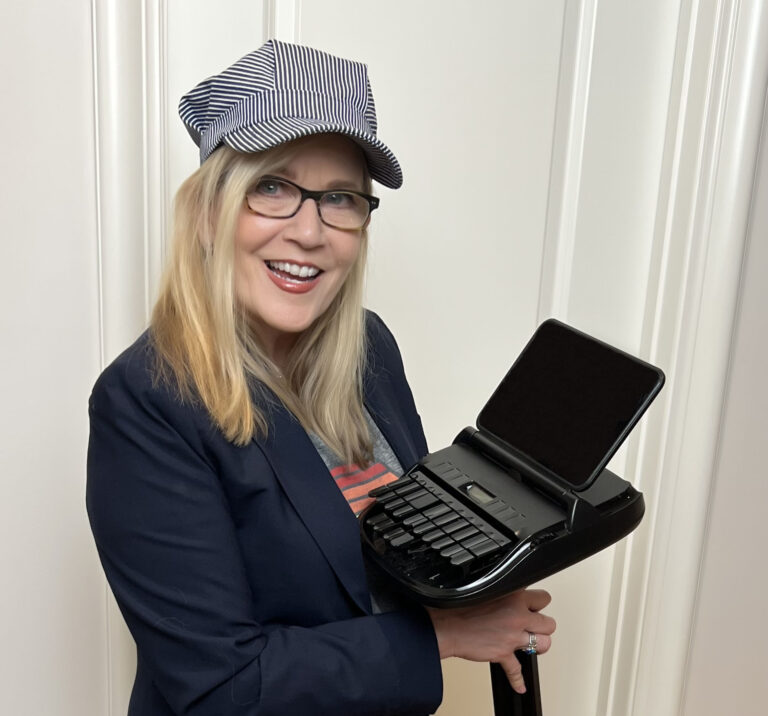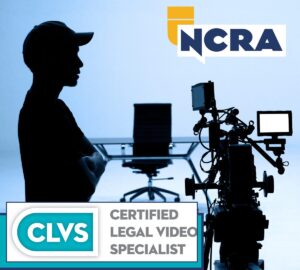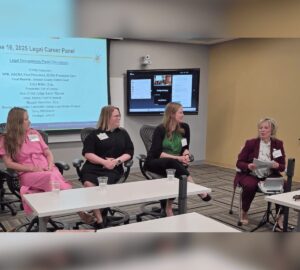By Lynette Mueller
So I’m a brand-new grandma to a sweet little baby that is exceptional in every way! The words “planner” and “organizer” apply to me for sure. My love of books, I’m hoping, will be transferred to my granddaughter.
With that plan in mind, I headed to the attic searching for age-appropriate baby toys and especially books for my little darling! Those attic boxes contain lots of special memories from my two children — yep, I’ve kept those treasures all these years.
An expansive library is so important for the little ones to help with social development and thinking skills and carries forward through adulthood. Books improve their language skills by copying sounds, recognizing pictures, and learning words. As court reporters, the love of reading also aids us in our journey to continue to expand our knowledge base and, ultimately, dictionary building.
I ended up finding a great little book titled “The Little Engine That Could,” authored by Watty Piper, to add to Kai’s collection. The message of this book and the illustrations are sure to capture my granddaughter’s attention!
There are lasting and enduring lessons for children and adults alike throughout this story. Court reporters can glean lessons from the Little Blue Engine in order to be the best engineers of their careers! Re-reading this great little book makes me pause and reflect on my years of court reporting and our beloved profession.
NCRA has designated May as Celebrate Certification Month. The monthlong campaign is a way for its members to show pride in the certifications they have earned, are working to earn, or are intending to earn. It is also designed to help encourage those who haven’t considered earning one of the Association’s many nationally recognized certifications to rethink their decisions. The campaign offers members the opportunity to share with their clients and potential customers the reasons why choosing a professional who holds one or more professional certifications helps guarantee the delivery of high-quality products and services.
The commitment to education and certification by testing ensures that the highest level of professionalism is consistently met. Court reporting has pushed me to soar and reach that next certification (RPR, RMR, RDR, CRR, FAPR). I have grown and evolved because of this profession and the amazing people I’ve met during my career. It has helped me conquer my fear of putting myself out there when meeting new people. My colleagues make it fun to learn together and grow together by finding new and better ways to write short, sharing realtime tips, technology and gadget advice, and much more.
Lesson No. 1: It’s okay to ask for help
The first engine that’s introduced in our story has a huge load of goodies for the children on the other side of the mountain. It’s a huge load and a job worth doing, even though it’s hard work. All of a sudden the engine realizes she simply could not go another mile and help was required to complete her task. Court reporters aspiring for that certification or next level may feel that burnout emotion too.
Humans are most definitely social creatures, and we thrive by being surrounded by friends and family. Search for like-minded court reporters to practice those speed takes and learn those new briefs from professionals who have gone before you. I’ve found that our profession as a whole is chock-full of giving court reporters who are delighted to share their wealth of knowledge and experience. Find that Facebook group designed to share tips, tricks, and briefs to assist you in your speed goal journey! Your certification quest will be less overwhelming and more bearable sharing it with other like-minded individuals.
Lesson No. 2: Be flexible in your goals
The Shiny New Engine had a pretty great job with the latest and greatest equipment and accommodations. As a brand-new student or new professional, you’re full of hopes and dreams of your career and what you want it to be. Sometimes, though, life gets in the way and plans can be derailed in an instant. When hitting that wall and being stalled at a speed level — it has happened to all of us (mine was 180 wpm) — keep pushing yourself and try not to get discouraged. Try some of these tips to help you through that slump:
- Read your notes and look for drops and/or hesitations
- Perfect those brief form outlines
- Find speedbuilding classes online
- Focus on accuracy
- Find televised trials or the evening news and practice, practice, practice
Remember to be flexible in your steno goals and continually audit them to make sure they are helping you become the court reporter you want to be!
Lesson No. 3: Mentoring and volunteering is essential
The Big Freight Engine thought he was a pretty important guy — he was hauling machinery around like it was nothing. He felt that without him the grown-ups couldn’t have their books or newspapers to read, and he didn’t feel a need to help the other engine that was carrying stuff for the children.
As professional court reporters, our schedules are hectic and it’s easy to get caught up in our own work lives — depositions, billing, scheduling, trials, and the like. Even though we may get caught up in our day-to-day challenges and duties, we should remember that we can have a huge and lasting impact on our court reporting students and new professionals through mentoring. Mentoring allows people to learn from one another, providing a path to knowledge transfer. As experienced court reporters with several initials behind our names, we have an obligation to share knowledge and insights as well as offer guidance to someone with less experience. NCRA and state associations have formal mentoring programs available for this very purpose. Look into them or find a student in your area to guide them through their education.
I’ve gained much satisfaction by donating my old writers to a student just starting school. Did you know you can donate your writer to the NCRA A to Z® Intro to Steno Machine Shorthand program? Our state has been very active in teaching an NCRA A to Z program. Perhaps yours is too! Think about volunteering in one of these worthy programs and look at our profession through the shiny faces and lens of a brand-new student. So worth it!
Another way to share your knowledge and experience is to volunteer for committee service with NCRA and/or your state association. Being the introvert I am, it was hard for me to volunteer for a committee. One of my best court reporter friends pushed me to serve on a committee and to start writing articles for the JCR, and my life has been changed forever! He has pushed me to heights I never could have imagined just ten years ago. There are so many benefits of volunteering:
- Provides a sense of purpose
- Provides a sense of community
- Helps you meet new friends
- Increases social skills — yes!
- Improves self-esteem
- Provides job prospects and valuable networking opportunities
Remember, court reporters, the most important phrase from this beloved children’s book and you will be on your way to the most rewarding career of your life: “I think I can. I think I can.”
Lynette Mueller, FAPR, RDR, CRR, is a freelance court reporter based in Memphis, Tenn., and chair of the NCRA Technology Committee. She can be reached at lynette@omegareporting.com.






